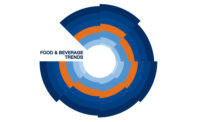The Future of Private Label Looks Bright
Fifty-three percent of consumers choose where to shop based on store brand, projected to increase to over 60%

Global strategy and management consultancy Kearney released its 2024 Private Label Report, "Why you shouldn’t discount the growth of Private Label," fielded in partnership with Neilsen’s NIQ. The data-rich study uses Kearney’s forecasting methodology that includes macro indicators, industry indicators, consumer and expert inputs, and a scenario-based approach, combined with NIQ industry data to determine short and mid-term growth rates and other trends for the private label category across channels.
“Private label can no longer be considered the poor cousin of major national brands,” noted Katherine Black, Kearney partner and lead author of the study. “We found that retailers are now investing in private brands as a differentiator: more than half of consumers rank private brands as a very important factor in their store choice, a number we project to be more than six in ten by 2023. Additionally, though the branded market remains significantly larger than the private label market, private label is outperforming branded products by 3 percent across both online and in-store channels.”
The Kearney Private Label Report shows an industry with the wind at its back, with positive demographic trends, category proliferation that fills in gaps in national brands’ portfolios, the quality-to-value equation being increasingly recognized by shoppers, and a strong potential boost to retailer economics.
The study found objective share gains already happening in nearly all edible categories, especially in strong sub-categories like salty snacks and fully cooked meat. Broader categories ramping up their private label sales include bakery, dairy, deli, meat, frozen, produce, grocery, seafood and alcohol, the latter two showing double-digit growth in both market share and unit percentage.
“The US lags behind European countries in private label penetration, signaling a major opportunity for grocery retailers,” said Black. “Private label can generate significant margin for U.S. retailers, while possibly posing potential risk for CPG companies as the mix shifts away from national brands. Companies need to pay attention to growing private label offerings—quickly being adopted by Gen Z and higher income consumers—before it’s too late.”
The Kearney Private Label Report advises retailers and consumer packaged goods (CPG) companies, among other tactics, to build agile supply chains that will quickly respond to shifting market trends, deploy strategic merchandising aimed at the shifting demographic buying private label goods, and collaborate with upgraded data sharing and transparency.
Looking for a reprint of this article?
From high-res PDFs to custom plaques, order your copy today!








